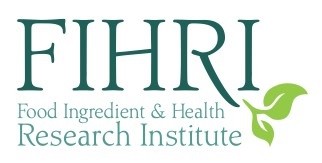
For Dr. Renee J. Dufault, science has never been confined to the lab; it's a calling rooted in public service, independent inquiry, and education. A former U.S. Public Health Service officer who served nine years at the Food and Drug Administration, Dr. Dufault spent over two decades investigating the connections between food ingredients and human health. "When I was with the FDA, my research was focused on contaminants in the food supply," she says. "But the findings I uncovered raised new questions about how those exposures might interact inside the body."
According to Dr. Dufault, when her findings met internal resistance, she chose to retire early so she could publish her research independently, an act that ultimately made her an FDA whistleblower committed to scientific transparency.
After identifying the presence of mercury in high-fructose corn syrup, a common ingredient in the U.S. diet, Dr. Dufault recognized a more complex problem: individuals are often exposed to multiple metals at once. "At the time, the average American was consuming a significant amount of high-fructose corn syrup every year," she explains. "It made me wonder what that meant for pregnant women and developing children."
Her discovery led her to develop one of the earliest models in what is now known as nutritional epigenetics, the study of how nutrients and food-derived chemicals can influence gene activity. "What a mother eats can determine how her genes behave, and those patterns can be passed on to her children," she says. "If heavy metals build up in the body, and the genes responsible for metabolizing them don't function properly, development can be affected."
After retiring from federal service to publish her findings, Dr. Dufault founded the Food Ingredient and Health Research Institute (FIHRI), a nonprofit organization dedicated to advancing independent research on food exposures and gene-environment interactions. As Executive Director and Principal Investigator, she continues to design and oversee studies that bridge science and community engagement. "As an independent researcher," she says, "I have the freedom to ask questions others might not pursue."
Today, that freedom drives her most ambitious project yet: a community-based clinical trial focused on pregnant women. The study, she explains, will evaluate how a six-week nutritional epigenetics education program, designed to reduce ultra-processed food consumption, affects gene activity and heavy metal exposure levels. "We are looking at one hundred participants, half of whom will receive this education early in their pregnancy," she says. "We have already used the same program successfully in other clinical trials to help parents reduce ultra-processed foods and lower exposure to heavy metals. Now, for the first time, we will follow these outcomes in pregnancy and early child development. Our research is focused on enhancing birth outcomes and mitigating the risk of autism and other neurodevelopmental conditions, including ADHD."
Unlike most clinical research, this trial is not university-funded; it's a volunteer-driven effort rooted in community collaboration. "We couldn't find a healthcare organization to partner with us," Dr. Dufault explains. "So, we decided to work directly with local partners outside the traditional system. That's what community-based research is: it gives people a direct role in discovery."
Dr. Dufault's scientific framework connects diet, environmental exposure, and gene expression through what she calls co-exposure modeling. "When you are exposed to multiple metals, lead, arsenic, and mercury at the same time, they can amplify each other's toxicity. We now know those interactions matter."
Her work has also become helpful for education. Beyond her research, Dr. Dufault has authored textbooks, developed curriculum materials, and taught nutritional epigenetics in classrooms and certification programs around the world. Recently, she trained a cohort of registered dietitians across Africa to become Certified Nutritional Epigenetics Educators. "We now have educators in Uganda, Nigeria, and Kenya," she says. "They are learning how to connect what we eat with how our genes behave, knowledge that can empower local health systems and families."
Despite her global impact, Dr. Dufault continues to teach special education during the week in Hawaii, funding her scientific pursuits largely through her own work. "I teach to keep everything going," She says. "Most of this research has been done voluntarily."
Through her nonprofit leadership, teaching, and ongoing clinical trial, Dr. Dufault has aimed to define a field that merges public health with molecular biology. Yet she approaches her accomplishments with characteristic humility. "I was doing this work before the human genome had even been mapped," she says. "Back then, we didn't know how many genes we had, or how they turned on and off. Now, we understand that our daily choices, what we eat, and what we are exposed to, can influence our genes for generations. That's what keeps me going."
© 2026 ScienceTimes.com All rights reserved. Do not reproduce without permission. The window to the world of Science Times.












